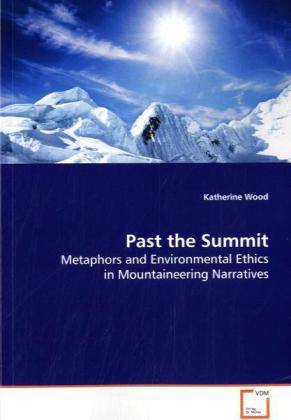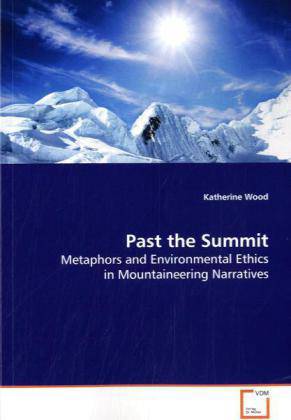
- Afhalen na 1 uur in een winkel met voorraad
- Gratis thuislevering in België vanaf € 30
- Ruim aanbod met 7 miljoen producten
- Afhalen na 1 uur in een winkel met voorraad
- Gratis thuislevering in België vanaf € 30
- Ruim aanbod met 7 miljoen producten
Zoeken
Past the Summit
Metaphors and Environmental Ethics in Mountaineering Narratives
Katherine Wood
Paperback | Engels
€ 82,45
+ 164 punten
Omschrijving
Mountaineering narratives are ripe for ecocritical
study.
Climbing books describe feats of daring, often ending
in heroic
success or miserable tragedy. But few have asked
what implications
mountaineering literature may have on our cultural
mindset and
environmental ethics. This thesis explores that
question,
and examines how metaphors in mountaineering
narratives can
reveal
underlying environmental ethics. While predominant
metaphors
visualize the mountains and environment as
objectives, enemies, and arenas for human
competition, more recent mountaineering texts offer
a wider range
of metaphors, including metaphors of goddess and
spirit.
These
metaphors encourage a sustainable environmental
ethics by implying an interconnected relationship
between earth and
humanity, which may in turn have positive
consequences for human
society. By
understanding the inherent assumptions in language,
we can choose
to resist metaphors that allow us to harm the world
and instead
choose metaphors that will help us keep the entire
biotic community
beautiful and stable.
study.
Climbing books describe feats of daring, often ending
in heroic
success or miserable tragedy. But few have asked
what implications
mountaineering literature may have on our cultural
mindset and
environmental ethics. This thesis explores that
question,
and examines how metaphors in mountaineering
narratives can
reveal
underlying environmental ethics. While predominant
metaphors
visualize the mountains and environment as
objectives, enemies, and arenas for human
competition, more recent mountaineering texts offer
a wider range
of metaphors, including metaphors of goddess and
spirit.
These
metaphors encourage a sustainable environmental
ethics by implying an interconnected relationship
between earth and
humanity, which may in turn have positive
consequences for human
society. By
understanding the inherent assumptions in language,
we can choose
to resist metaphors that allow us to harm the world
and instead
choose metaphors that will help us keep the entire
biotic community
beautiful and stable.
Specificaties
Betrokkenen
- Auteur(s):
- Uitgeverij:
Inhoud
- Aantal bladzijden:
- 128
- Taal:
- Engels
Eigenschappen
- Productcode (EAN):
- 9783639169690
- Verschijningsdatum:
- 16/07/2009
- Uitvoering:
- Paperback
- Afmetingen:
- 152 mm x 229 mm
- Gewicht:
- 200 g

Alleen bij Standaard Boekhandel
+ 164 punten op je klantenkaart van Standaard Boekhandel
Beoordelingen
We publiceren alleen reviews die voldoen aan de voorwaarden voor reviews. Bekijk onze voorwaarden voor reviews.







